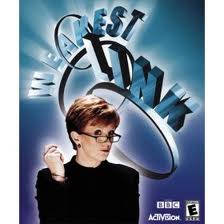 To kick off our series on different types of youth work, we have an interview with a Prevention Services youth worker – me!
To kick off our series on different types of youth work, we have an interview with a Prevention Services youth worker – me!
1. What type of youth work do you do?
I have a full-time position as a substance abuse and mental health Prevention Training Specialist with the local government.
2. What do you do in an average week?
I work in small group and large group settings, delivering evidence-based social and emotional education programs that have a focus on preventing access to, use and misuse of medications, illicit substances, gateway drugs and other potentially illegal and harmful substances.
I also support and chair a local coalition of community and agency partners that focus on helping the youth in our city to stay away from drugs, alcohol and tobacco.
3. How long have you been doing prevention services?
Officially, I have been doing this specific role for seven months, although I’ve been doing what would be considered prevention services and social inclusion services for over eight years.
4. What other types of youth work have you done previously?
School-inclusion programs, youth participation programs, social-inclusion/social-enterprise programs, faith-based youth ministry, youth re-entry program design, Girl Scout troop leadership and project-based education programs.
5. What age range do you work with?
I work with children and youth who are between the ages of 4 and 17., although my preference is 11-14’s.
6. What’s unique about your particular type of youth work?
We focus solely on helping prevent the use of drugs, alcohol and tobacco although recently it has begun to include bullying, suicide and obesity prevention.
7. What are some of the good things about prevention services?
Using evidence-based curriculum that is pre-designed and packaged with all its supplies, meaning it’s much easier to do many groups with less preparation time.
8. What are some of the challenges of it?
It’s hard to prove something that never exists. Theoretically, yearly lower drug use numbers among young people proves that prevention works, but with many factors – both protective and risk – it’s hard to prove a direct link to funders and potential partners.
It can also be challenging filling up a work day from 9-5 if you are unable to deliver programs in the schools, because it restricts the amount of face-to-face youth work you can do.
9. Why are you passionate about this type of youth work?
I’ll be honest, this isn’t the work I’m most passionate about, but I’ve found things I appreciate about this type of work. It starts from a positive position and helps with social and emotional skills such as goal setting and decision making, not just ‘don’t do drugs.’
10. What would you recommend for someone wanting to get into this type of youth work?
It’s great if you enjoy working with children and youth. A lot of the young people I work with are in elementary and middle school, so we can help them avoid drugs altogether before they reach the temptations of high school.
Talk to your local Community Service Board or Behavioral Healthcare Service in your city or county if you live in the US, as that is where the prevention department is often based from.
11. Is there any special training or qualifications required?
You can be a Prevention Training Specialist without any special training or qualifications, although your employer may want you to pursue a Certified Prevention Specialist qualification. In my state, this requires 100 hours of prevention-related training and 2000 hours of prevention services delivered to qualify.
12. Is there anything else you’d like to share?
Prevention work can be really rewarding, especially when what you’ve taught is remembered by the children and youth. It’s worth noting that the face of prevention is starting to change, with more focus on environmental strategies rather than programs and events.
This is because they’re more cost effective and provide ongoing ‘sticks and carrots’ for people to help them avoid substance use/abuse, such as non-smoking areas in public places and work places or a push for tighter underage drinking laws in a locality.
Shae Pepper has been a Professional Youth Worker for seven years and a Volunteer Youth Worker for eight years. She has a Master’s in Youth Work and Community Development from DeMontfort University in Leicester, England. Shae has provided training for youth workers in England, the USA and Rwanda and has worked with young people aged 8-21 in England, Rwanda, the USA and Thailand.
Please feel free to use the comments below if you have any questions about Prevention Services. If you’re also a youth worker in Prevention Services, we’d love to hear about your experiences in the comments too.
If you’re a youth worker and would like to take part in this series, please contact us.
You can also connect with us by:
- Signing up to receive our posts via email
- Following us on Twitter
- Liking us on Facebook
- Signing up to our RSS feed
 I was sat in the bar at the hotel, watching myself on TV. And then it happened.
I was sat in the bar at the hotel, watching myself on TV. And then it happened.